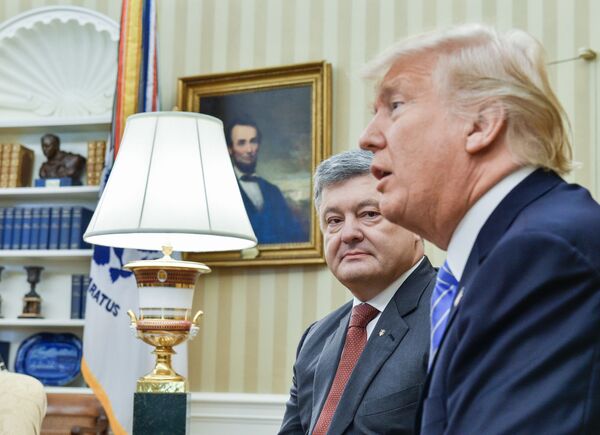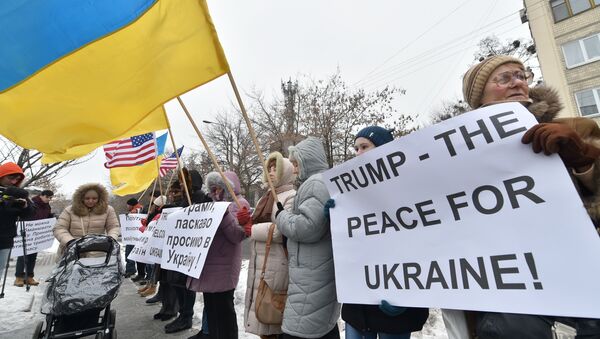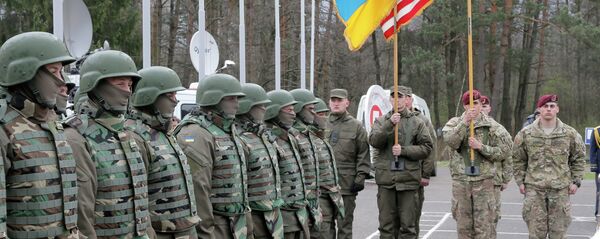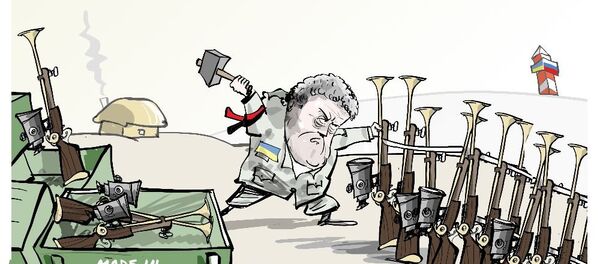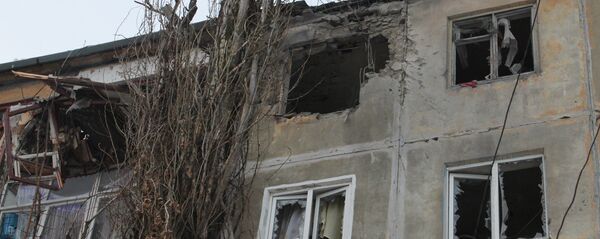Following months of internal debate, the State Department announced Friday that the US has "decided to provide Ukraine enhanced defensive capabilities" aimed at building up Kiev's "defense capacity." The move follows reports from earlier this week that the State Department had approved export licenses for the commercial sale of small parties of weapons to the instability-wracked country by US arms makers.
Also Friday, the US Trade Representative's Office announced that President Trump would partially suspend Ukraine's benefits under a US preferential trade program in 120 days unless the country makes major steps to better protect intellectual property rights. Kiev, according to the US trade office, has "failed" to adequately protect intellectual property, "despite years of encouragement and assistance from the US government."
Economic Nationalism vs. Neoconservative Foreign Policy
President Trump's economic nationalist approach to foreign policy hit Kiev particularly hard. Earlier this year, administration plans on US foreign aid for fiscal year 2018 leaked to US media outlined a whopping 68.8% cut in assistance to Ukraine. Ukraine's Embassy in Washington quibbled over the scale of the cut, saying the proposal is really "around 30%." At the same time, the Trump administration enthusiastically approved Kiev's decision to buy US thermal coal, despite its price being almost double that which Ukraine would pay for the heating source from nearby Donbass or Russia.
At the same time, the US president has had considerably more difficulty challenging the neoconservative agenda on US Ukraine policy. Trump's campaign promises of curbing US involvement overseas and trying to work together with Moscow on global issue, including the Ukraine conflict, haven't panned out. Possibly under pressure from Congress and the US bureaucratic apparatus, Trump appointed John McCain ally Kurt Volker as the US's special envoy to Ukraine. Making several trips to the country, Volker immediately began accusing Russia of engaging in 'hybrid warfare' in Ukraine's breakaway Donbass region, and has pushed aggressively for a more active US policy vis-à-vis Kiev, including through the supply of lethal weapons to the country.
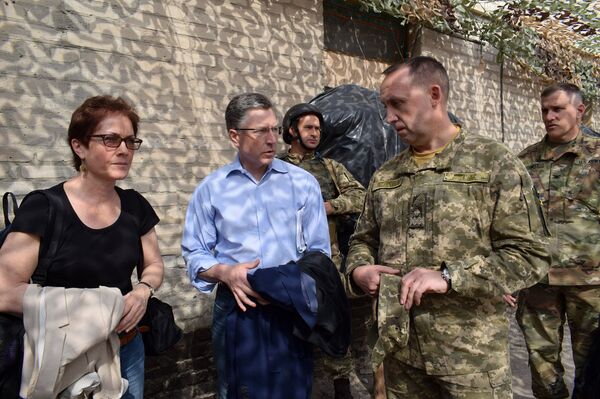
This past week, Volker warned that the situation in eastern Ukraine has significantly deteriorated, and even suggested that 2017 has become the "deadliest year" since the civil war began in 2014. Volker accused 'Russian-backed forces' of escalating the conflict.
Earlier this month, Russian Foreign Minister Sergei Lavrov and US Secretary of State Rex Tillerson met to discuss global hot spots, including Ukraine. Lavrov stuck firmly to the position Moscow has held since the signing of the Minsk accords in February 2015, stressing that the accords must be implemented, and arguing that Kiev has played the key role in stalling this process.
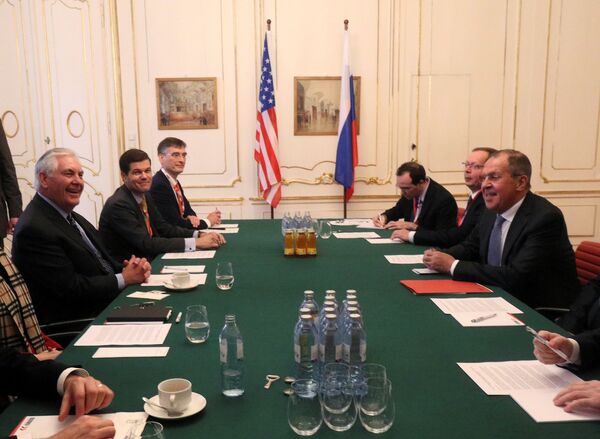
Cause for Dangerous Escalation
With these issues in mind, reaction from Moscow over Washington's Friday announcement has been highly critical. Deputy Foreign Minister Grigory Karasin told RIA Novosti that the arms deliveries threaten to disrupt the peace process and hamper the implementation of the Minsk accords. Deputy Foreign Minister Sergei Rybakov echoed his colleague, saying that in the present situation the US in Ukraine looks "less like an intermediary and more like an accomplice in fueling the war." Finally, Senator Franz Klintsevich, a senior member of the Senate's security committee, warned that US weapons will encourage Kiev to use force. "The Americans, in essence, are directly pushing Ukraine's military toward war," he said.
With Ukraine recently approving a whopping 14.8% increase in its defense spending for the 2018 fiscal year, Washington's decision to provide the country with lethal weapons is a worrying development. However, facing growing political instability at home, including a slew of street protests in the capital and more and more calls for the country's government to resign, it's unclear whether Kiev will dare to try to fulfill its dream of pacifying the Donbass by force.
